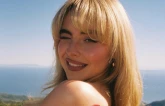
The tenure of the current elected government has been marked by an intense contention for turf amongst the main organs of the state: the executive, parliament, the military and the judiciary. This political turbulence and the associated institutional instability, signifies a reconfiguration of the elite coalition. This dialectic of power has created the possibility of achieving a new balance within the state structure that corresponds in practice to the balance stipulated in the Constitution.
Five key institutional changes have occurred in recent years which could enable Pakistan to tread more firmly on the path to democracy: (1) The citizens’ movement led by the lawyers — unprecedented in its intensity, sacrifice and geographic coverage — served to restore the judiciary. In so doing, the movement helped establish the norm that the people of Pakistan are willing to preserve, protect and defend the Constitution. (2) The heroic initiative by Mohtarama Benazir Bhutto in the face of obvious danger to her life, of launching a campaign against the military dictatorship of General Pervez Musharraf. In sacrificing her life for democracy she joined the pantheon of martyrs whose memory inspires the resolve of the people to defend their freedom. Such great sacrifices permeate into the collective consciousness and folklore of the people, and hence irrigate the organic growth of democracy. (3) The passage of the Eighteenth Amendment rectified the distortions introduced in the Constitution by successive military governments to facilitate the overthrow of elected civilian governments. (4) The emergence of an independent judiciary with a spine whose strength was drawn from the will of the people. The Supreme Court began to hold to account not only the incumbent government for corruption and malfeasance, but through its power of suo motu strove to protect the rights of citizens who had been abducted by various security agencies. It publicly scrutinised a case in which the ISI had allegedly funded opposition political parties, and it castigated elements in the military establishment who had stepped outside the law. Such dispensation of justice without fear or favour has helped to achieve a new balance between various organs of the state in accordance with the Constitution. (5) The perceived threat of destabilisation of the elected government by the military, following the so-called ‘memogate’ affair, was successfully overcome in a historic face-off between the prime minister and the military.
As the people of Pakistan build democracy they face two major threats: (1) An economy that within its existing rent-based structure, extracts the fruits of the labour of people for the profligacy of the elites. Consequently while the people are deprived of the minimum conditions of dignified life, public debt has increased to such an unsustainable level that the country faces bankruptcy. (2) The religious extremists pose a threat not only to the way of life of the people of Pakistan, but to its very existence as a state. The response to them is ambivalent: they have apparently penetrated the security apparatus, and won allies amongst some of the right wing political parties. The way democratic forces address these challenges will shape the future of democracy.
Published in The Express Tribune, May 21st, 2012.
COMMENTS (6)
Comments are moderated and generally will be posted if they are on-topic and not abusive.
For more information, please see our Comments FAQ







1729685382-0/Untitled-design-(57)1729685382-0-270x192.webp)




May I also add one factor that is going to make a substantial impact on the next election is media. Political peformance of all remains very much under media focus and public sentiment is being agitated by media.
Next general election will witness the full impact of media on the voters.
@Falcon, PTI has become a beacon of hope for the people who had lost faith and interest in our country and its future. It has made the people politically sensitized and awakened interest in politics. That can only be a good thing. As our inestimable premier said "and why don't they leave?what's stopping them?" This is what is stopping the people who are at the rope's end with their own leader telling them to get out of the country. A hope in the potential of the country, the resilience of the people and a genuine desire to see things change. Vote for PTI, Vote for Change.
The PPP government has been the biggest pitfall of democracy making people lose faith in the inherent fairness of democracy. You can talk about the path to democracy, the gradual process, the way it eventually rights wrongs, etc ad nauseum but the fact remains, democracy is just used as a political card by those in power to justify their reprehensible actions.
I think democracy has linked to the solution of the other problems like unemployment,gas,water,light etc.The author pointed out that the movement of lawyers was the signal of the people concepts about the current government performance.But now a days on the other issues,why the people are not seem to take stand against the government.
May I also say that three additional things that have contributed to the support of democracy are findings of the wrong-doings of Musharraf Govt as they continue to unfold every day, hawkishness of media that conveys to the public that at least someone other than the helpless is paying attention to the aggression of elite, and emergence of new political alternatives (such as PTI) that have kept people off the streets in hope for a better democratic dispensation in the near future (despite all the challenges of energy / gas / water / soaring food prices / high unemployment)
Dr. Sahib, Your arguments well taken, Pakistan was always an exclusionary polity whether under military rule or civilian elite. You are correct to pint out that lawyers movement added a new chapter but things started falling apart after that. The struggle for power between institutions will ultimately lead to another breakdown and shift back to military. That will be disastrous for the country. There was a need to strengthen the institutions after the civilian government came in power and the CJ was back to the bench. Unfortunately that did not happen. All we see is street politics, chaos, brawls among legal community, irresponsible statements from all sides, and distarbandi of the crown prince. These add to the confusion of an ordinary citizen than helping her/him in understanding it and becoming participant.